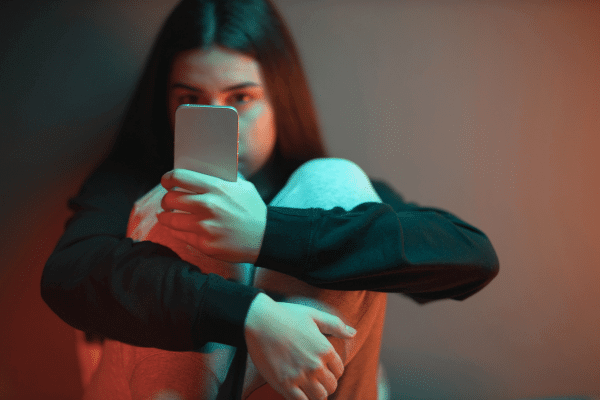When Charlotte O’Brien’s mother asked police how her 12-year-old daughter could have possibly known how to commit suicide, she was simply told the information would have been right at her fingertips due to social media. And so, it’s no doubt the Albanese Government’s proposed bill to prevent youth under 16 from accessing platforms, would have many parents breathing a sigh of relief.
View this post on Instagram
But the rush to pass the bill, lauded as a “world first,” and the ambiguous rhetoric which has followed it, has left many unconvinced about its efficacy.
Social media is a slippery term indiscriminately applied to any platform which serves as a vehicle for online communication. As a result, many experts are unsure which platforms may be held liable for failing to prevent access in accordance with the bill and whether even online games with chat room functions could fall within its ambit. It’s also yet to be answered how age verification, the most important component of the legislation, will occur.

Ritesh Chugh, Associate Professor in Information and Communication Technologies at Central Queensland University, says age limitations could in fact have implications for online privacy.
“Social media companies may attempt to impose age limits through digital identity verification systems, which could range from requiring a government-issued ID to using biometric data. While these systems might help enforce age restrictions, they could also lead to privacy concerns and data security risks,” he said.
“While social media platforms can implement age verification measures, there is always the potential for users to bypass these safeguards.”
Associate Professor Chugh believes the ban could also result in developmental disadvantages for Australia’s young people.
“There is a risk that strict age limitations could limit access to valuable online communities, educational resources, or family connections, particularly for older children and teenagers who may benefit from these interactions,” he said
“Shielding children from social media could indeed deprive them of important digital literacy skills, which are increasingly essential in our interconnected world. Social media is an important tool for learning, networking, and staying informed.”
“A complete ban on social media could risk isolating children from these benefits, especially in a world where much of communication and education has moved online,” he continues.

With the majority of the high schoolers who will be impacted by the bill born after the iPhone and online messaging boom of 2008, many are unhappy with a blanket ban on platforms they have grown up using.
Rithvik*, a 17-year-old student, feels social media is a way to test the waters of the real world as it provides a window into the nature of human interactions.
“I would have been unhappy if the bill had been announced when I was under 16. Despite social media’s weaknesses, it has a net benefit. Otherwise, it would be extremely hard to communicate with my friends at all,” says Rithvik.
“I don’t really believe it should be up to these social media companies to protect us. As long as they offer a block function, I don’t think anything else is necessary. Ultimately, I believe that it’s up to the teenager to be smart online.”
Conversely, extensive research and recent tragic instances have highlighted the harmful effects of social media, including the early adoption of misogynistic ideologies by boys and damage to self-esteem and body image of young girls.
Prime Minister Albanese hopes the bill will band together the government and parents against social media companies.
“We need to do everything we can to keep our kids safe… I know one of the biggest issues worrying mums and dads is the impact social media is having on their children’s well-being,” he said at a news conference on 7 November.
The profit driven and data hungry nature of social media companies has fuelled bipartisan support for the bill, with many teenagers such as Nidhi* also in favour of curbing profit driven imperatives.

“[Social media is] just something which wastes your time. Plus, if you wanted to use it to communicate with people you could instead hand out your number or email,” says Nidhi.
“More importantly, I don’t think any company would care to protect young users as they care more about profit,” she continues.
But many teens, including Bhumi* feel that desperately embracing a blanket solution will make the allure of these platforms grow stronger.
“The ban itself will not prevent young people from being on social media… Instead, it will make the impacts more harmful, as young people will fear the consequences of being online in the first place, and hide any harmful situations, rather than speak up. I think the phrase “strict parents make sneaky children” reflects this idea,” Bhumi said.
Associate Professor Chugh agrees the varied living circumstances and diversity of the youth might make a ban insufficient in tackling this multidimensional issue.
“Without a thorough and inclusive consultation process, there is a risk of implementing policies that fail to address the needs and realities of all stakeholders, leaving some voices unheard,” he said.
Associate Professor Chugh recommends a greater focus on digital literacy instead of the ban and encouraging social media platforms to create safer online environments.
“We do not simply ban cars because they can be dangerous, we recognise that driving offers significant benefits, such as independence and access to employment, but we set conditions to ensure safety,” said Chugh.
“Rather than a blanket ban, we should focus on creating guidelines that ensure children can use social media safely while still benefiting from its educational and social advantages, much like we teach young drivers how to be responsible on the road.”
In light of this, perhaps it is important to consider whether a world first, despite its best intentions, might simply leave its younger generation trailing behind.
* Names have been changed for privacy.
READ ALSO: How did they get my data?





